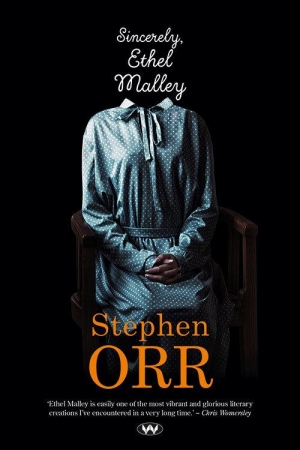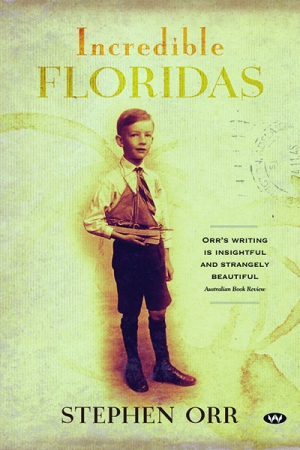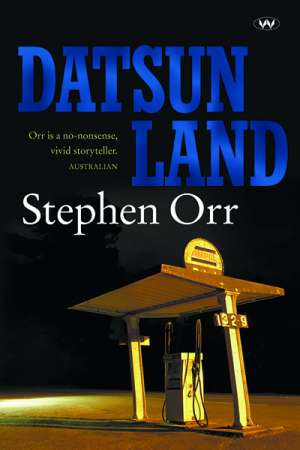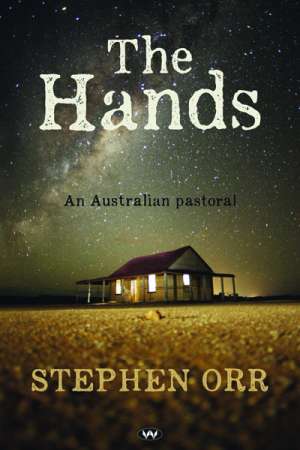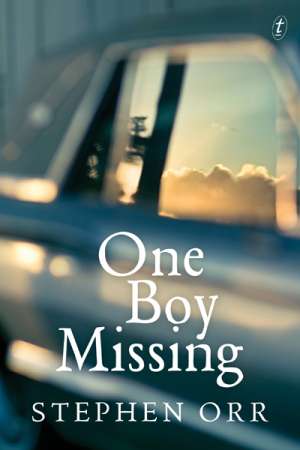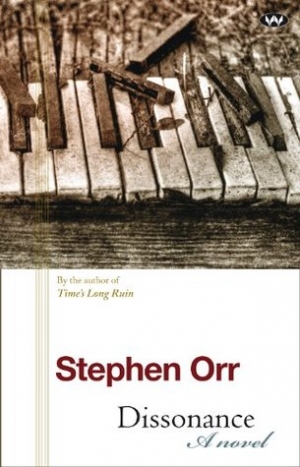Stephen Orr
Susan Sheridan reviews 'Sincerely, Ethel Malley' by Stephen Orr
‘Ern Malley’ – a great literary creation and the occasion of a famous literary hoax – has continued to attract fascinated attention ever since he burst upon the Australian poetry scene more than seventy years ago. But his sister Ethel has attracted little notice, she who set off the whole saga by writing to Max Harris, the young editor of Angry Penguins, asking whether the poems left by her late brother were any good, and signing herself ‘sincerely, Ethel Malley’.
... (read more)Each year, ABR publishes an issue dedicated to sustainability, climate change, and the environment. In today’s episode, we look back on Stephen Orr’s Eucalypt Fellowship essay, which was the feature of the October 2017 issue of ABR. His essay, ‘Ambassadors from Another Time’, attempts to understand Australia’s complex relationship with the eucalypt, examining the nation’s evolving understanding of these iconic trees.
... (read more)Despite the detailed excavatory art of the finest biographies, sometimes it takes the alchemical power of fiction to approximate the emotional geography of a single human and his or her milieu. Stephen Orr’s seventh novel, a compelling and at times distressing portrait of a twentieth-century Australian painter and his family ...
... (read more)#17 Stephen Orr reads 'Ambassadors from Another Time'
Thursday, 02 November 2017From the Herbig family who lived in a hollowed out tree trunk to Dr Bosisto’s ‘Syrup of Red Gum’, from the trauma and regeneration of bushfires to the ill-fated Burnside Village tree, the Tree of Knowledge, and the ‘dig tree’ - how can we understand Australia’s complex relationship with the eucalypt? The
First, I need to visit Dean Nicolle’s eucalypt arboretum. Four hundred rows of trees, four specimens of each species of Eucalyptus, Corymbia, and Angophora (the eucalypts) nestled together, sharing pollen and landscape, dropping limbs in the grass. Each group of trees is a result of the previous year’s fieldwork. The year ...
... (read more)Datsunland, a collection of short stories and the latest from Stephen Orr, is in many ways flawed. The collection is uneven: the final (titular) work is a novella previously published in a 2016 issue of Griffith Review, which overwhelms the earlier, shorter stories, exhibiting the depth and nuance which several others lack. The narratives and chara ...
Fellowships galore

The Wilkie family has farmed cattle at the edge of the desert for 130 years. When catastrophe strikes, three generations of men must wrestle with secrets from the past and the present. The decision whether or not to continue on a failing station becomes critical; definitive action no less testing.
The subtitle juxtaposes elegy and irony: though some characte ...
Stephen Orr’s previous novel, Time’s Long Ruin (2010), which was short-listed for the Commonwealth Writers’ Prize and long-listed for the Miles Franklin, explored the repercussions within a quiet Adelaide community of the disappearance of three of its most vulnerable members, closely related to the disappearance and presumed murder of the Beaumont children in 1966. It was a languid and thoughtful study of character and place, important in a novel that was never going to achieve any real resolution. Especially well drawn was the relationship between Henry, the narrator, and his detective father. One Boy Missing similarly explores the relationship between sons and fathers, and also has at its centre the generative mystery of children gone missing, although this novel is deceptively clothed in the tropes of a standard police procedural.
... (read more)Percy Grainger has been the subject of a number of books (most notably a 1976 biography by John Bird), a play (A Whip Around for Percy Grainger, 1982) by Thérèse Radic, and a feature film, Passion (1999), by Peter Duncan. He was an avid letter-writer, and his correspondence has been anthologised and critiqued. Thanks to his eccentric way of life and sometimes erratic behaviour and opinions – his famously close relationship with his mother, Rose, his self-flagellation, dubious theories of race and culture – the composer has also long been the subject of salaciousspeculation. Grainger was a large personality, and conjecture about his habits and personal tastes has often over-whelmed considerations of his modest, yet important, output as a composer and arranger.
... (read more)
